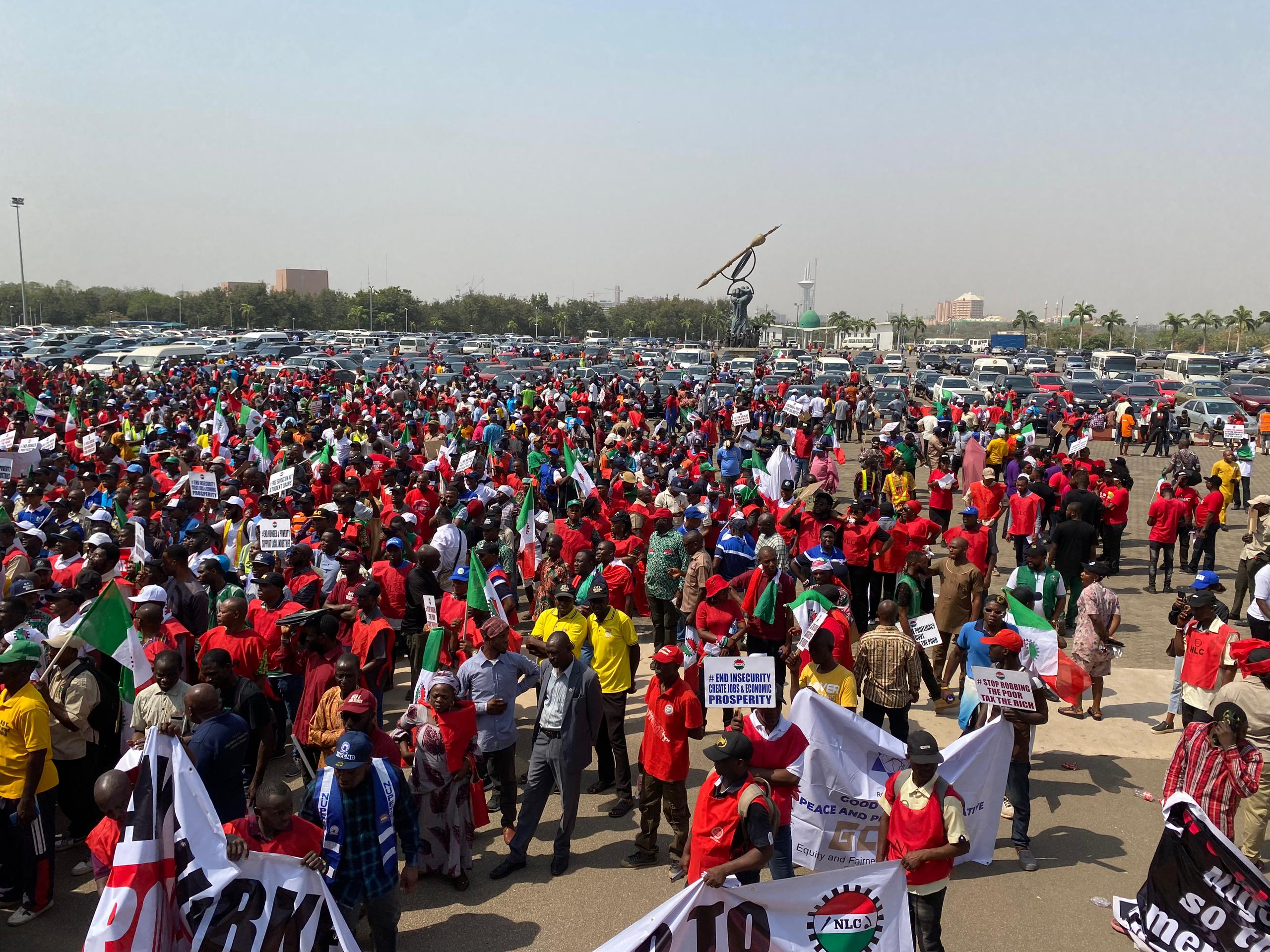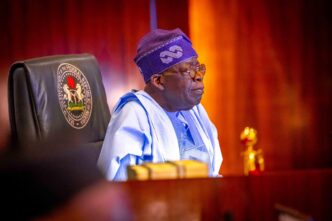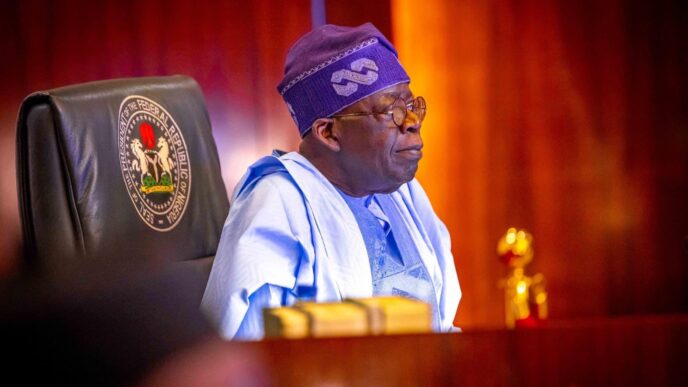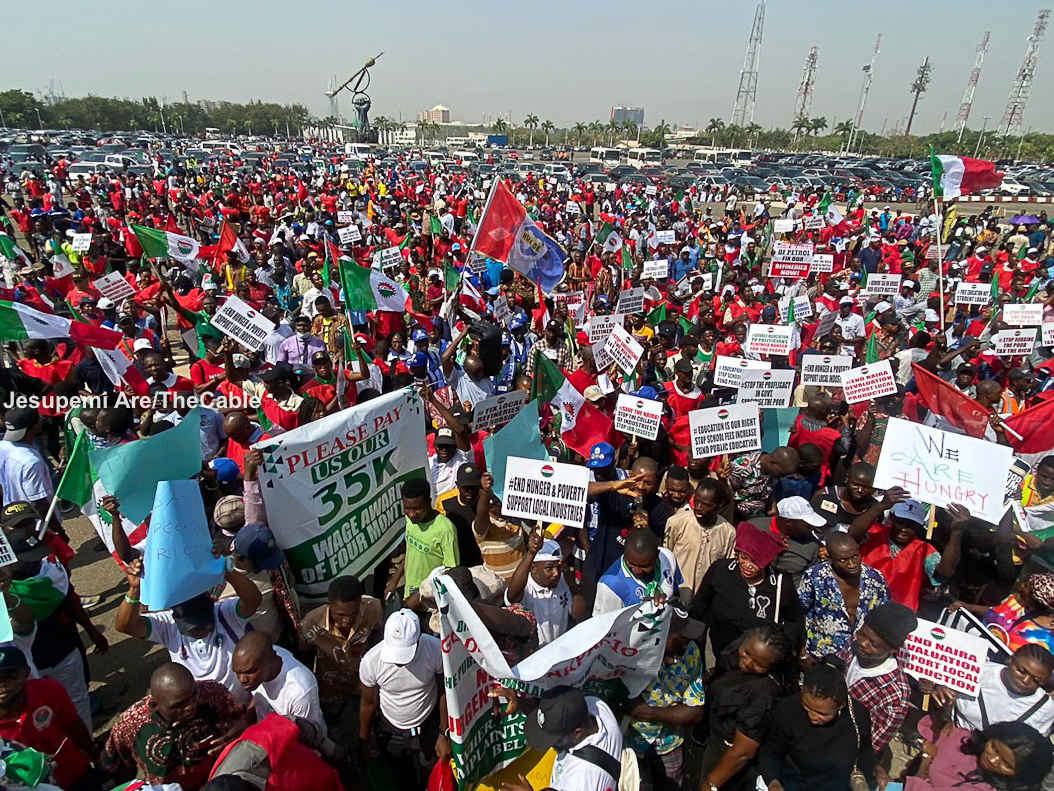BY ABIODUN OWOLEGBON-RAJI
Over two-thirds of the 180 countries on Transparency International’s Corruption Perception Index score below 50 out of 100 — 100 being the least corrupt-perceptible score. More specifically, Sub-Saharan Africa has over 40 countries in the bottom half of the index. Though corruption remains a global scourge, this data spotlights a harrowing reality: Africa’s leaders continue to encourage corruption by waiving punishments, undermining justice and increasing impunity, causing devastating developmental effects on the continent.
Tragically, the prospects get bleaker as the next generation seems to subscribe to similar ideals. Corruption is proving a menace among Gen Zs also. In a study, Sift CEO, Kris Nagel finds that above 40% of Gen Zers are willing to engage in first-party fraud, owing to disillusionment about economic realities and poor work attitude. More worryingly is their carefree credit patterns fuelled by the rapid adoption of digital financial services and user-friendly loan apps.
Cutting across intergenerational boundaries, corruption is the biggest impediment towards global development. Inflation, lack of access to basic services such as health and education, economic stagnation and even institutional inequality are some of its effects on society. Over time, corruption erodes the citizens’ belief in their leaders, creating social friction that undermines national cohesion, which increases the risk of conflicts and violence. A recent example is the Kenya Finance Bill Protests.
Advertisement
In June 2024, Kenyan GenZers took to the streets and stormed parliament buildings in protests sparked by the government’s proposal to increase taxes through its Finance Bill 2024. The protest erupted when security agencies responded with force, including the abductions, torture and killings of citizens, some believed to be leaders of the anti-government protests. President William Ruto responded by dismissing his entire cabinet on July 11, 2024, though he later reappointed some of them to new positions.
No lessons learnt, a new case unfolds as Kenyan airport workers embarked on a recent strike over a takeover bid by India’s Adnani group. The deal has since been cancelled after the group’s directors were charged with bribery in New York.
Furthermore, corruption hampers the efforts of charities and philanthropists. Donors are encouraged when charitable organisations improve the quality of life of beneficiaries and communities. Conversely, lack of transparency, malfeasance and fractional project implementation put off philanthropists who could drive developmental factors in a private capacity.
Advertisement
In 2011, the Global Alliance for Vaccines and Immunisation (GAVI) suspended three cash-based programs in Cameroon, Niger and Cote d’Ivoire. The decision followed gross misuse of cash grants of approximately $18 million. Similarly, about $2.2 million was misused under the same program in Nigeria in 2015, though the government reimbursed it later. These corruption cases uniquely undermined the immunisation programs’ effectiveness and also eroded trust in donors and the global health community.
Secondly, French firm Alstom pleaded guilty to bribery charges and paid a $772 million fine for corrupt practices in several countries, including Egypt. Court documents revealed that between 2002 and 2011, Alstom bribed Egyptian officials with cash, gifts, and entertainment to secure preferential treatment in bidding for government power contracts. This case follows a similar one involving Adel al-Gawhary, a former vice president of Bechtel, who pleaded guilty to accepting bribes while working on a joint venture with Egypt’s state-owned energy company and taking kickbacks from firms to secure $2 billion in contracts. The African Development Bank’s Office of Integrity and Anti-Corruption subsequently imposed a 76-month debarment on the company.
The two examples highlight the corruption risks associated with philanthropy and infrastructural development aid in Africa, where funds intended to benefit vulnerable demographies are diverted for personal gain.
Notwithstanding, it is pertinent to note that the focus has always been only on the corruption on the Dark Continent, and rarely looks at the other side of the coin. Corruption is a two-way crime, and whilst it’s hard to know which side starts it, the effect is the same. And the developed world is just as porous as Africa (if not worse) at disciplining the offenders on its side.
Advertisement
Legal loopholes and media blackouts facilitate illicit financial outflows from Africa. The proceeds from the looting that contributes to the continent’s underdevelopment are indeed sitting in the banking institutions of North America – especially the US, Switzerland, Britain, France, etc. and the tax havens created by the West.
To illustrate, former U.S. President Donald Trump — in early 2017 — signed a legislative order repealing a section of the Dodd-Frank Act that required the disclosure of any funds received from foreign governments for deals in the extractive sector. The Economist Magazine noted that oil giants like Exxon and Mobil were major beneficiaries.
According to the UN, an estimated $148 billion is stolen from Africa annually by politicians, business leaders and civil servants. Of particular poignancy is the continued collusion of Western governments and financial institutions. The COVID-19-linked WE Charity scandal in Canada immediately comes to mind.
Craig and Marc Kielburger, the two brothers who led the charge on the ME Charity scandal in Canada, are free and living the good life with little to no reference to the impropriety on their profiles. On the other hand, the institutional corruption they facilitated has continued in Narok County, Kenya — the focus of many projects.
Advertisement
In 2021, an investigative documentary by the Canadian Broadcasting Corporation (CBC) uncovered massive donor deception and overfunding of projects in rural communities across Kenya. Documents revealed that far fewer schools were built than were funded by donors, and leaked internal WE Charity documents reveal it was coordinated at the highest levels of the organisation.
Children and philanthropists were consistently misled as WE solicited funds for building schoolhouses in Kenya. “Multiple donors were sent photos of same schoolhouses WE Charity said each had fully funded,” says the CBC’s The Fifth Estate.
Advertisement
Despite facing multiple investigations and lawsuits such as the WE Charity nepotism and favouritism scandal (including hiring family members and friends), a parliamentary committee investigation of financial mismanagement, a class-action lawsuit related to the organisation’s handling of donations, and the sole-sourced contract to administer a $900 million student volunteer programme that was later cancelled due to public outcry, the Canadian government is by default protecting its own.
Marc and Craig were also engaged in controversies in Ecuador and India.
Advertisement
The Canadian government has the impression it has halted all investigations of the Kielburger brothers and the politicians, businesses and philanthropic organisations that supported them.
If prosecution seems a far stretch, feigning the moral high ground with some slaps on the wrist would have been welcome. But even that remains elusive as the Canadian government ignores the ethical element in judicial administration. The Kielburgers have not even been stripped of their awards (including the order of Canada), as if to say the government endorses their actions.
Advertisement
More deplorably, a documentary that glorifies their work was released last year describing Craig’s “journey into becoming an activist against child labour”. As it stands, there isn’t much to choose between the corruption perception indices of Africa and the West. There’s not much chance for struggling African nations to bring their corrupt leaders to task if this is the example set by the First World.
At any rate, the West is not the only culprit in this regard. Eastern giants like Russia and China have their interests as well.
Russia has increased its influence in Africa by forming alliances with politically isolated leaders, most of whom govern some of the most corrupt countries on the continent. Through controlled chaos and state capture, the Kremlin promotes the leaders and a few private individuals gaining significant influence over the countries, prioritising private interests over public good. Two notable examples are the Central African Republic (CAR) — where President Faustin-Archange Touadéra brokered a deal with Russia for arms and mercenaries in exchange for access to diamond and gold mines — and South Africa where former President Jacob Zuma’s administration alongside the Gupta brothers, drained the treasury with an estimated cost of US$100 billion to the nation’s economy.
Donald Trump’s return to the presidency raises questions about the US’s ability to lead global anti-corruption efforts, given his historic felony conviction. In May 2024, Trump became the first US president to be found guilty of a felony, with 34 criminal charges related to hush money payments. This unprecedented situation sparks concerns about the US’s credibility in promoting transparency and accountability worldwide, particularly as it aims to spearhead initiatives against global corruption.
To cap, corruption remains a significant global issue, with over two-thirds of countries scoring below 50 on Transparency International’s Corruption Perception Index. Africa is particularly affected, with many countries in Sub-Saharan Africa ranking in the lowest quartile. However, corruption is a two-way crime, and the developed world, including Western governments and financial institutions, often facilitates and enables illicit financial outflows from Africa. The West’s complicity in corruption is exemplified by cases such as the WE Charity scandal in Canada, where the Kielburger brothers were involved in multiple allegations but faced little to no accountability. This lack of accountability undermines global efforts to combat corruption and sets a poor example for developing countries.
Abiodun Owolegbon-Raji can be contacted via [email protected]
Views expressed by contributors are strictly personal and not of TheCable.









